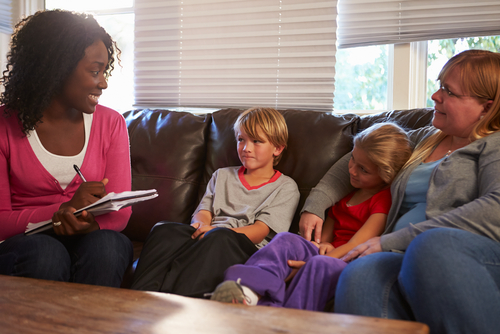1. Richard Wilkinson: How Economic Inequality Harms Societies
Social workers are regularly exposed to the economic inequalities that divide communities. Wilkinson paints an accurate picture on the state of America and how your net worth directly affects the quality of life you will experience. The disparities among economic classes are huge and change is needed to lessen the gap.
2. Brene Brown: The Power of Vulnerability
Brown’s powerful and insightful talk on vulnerability will ring true for most social workers. It is necessary when working with disadvantaged people and those in need of support and help to understand the power of the shame cycle, which Brown addresses in her talk. An overall uplifting and inspiring talk, this is one that all social workers must watch.
3. Ernesto Sirolli: Want to Help Someone? Shut Up and Listen!
Social workers are in situations where they must be empathetic listeners on a daily basis. As Sirolli attests, listening is a skill that must be done intentionally and with great care. Being an empathetic listener allows the social worker greater access into the stories and lives that are being shared with them.
4. Dan Pallotta: The Way We Think About Charity is Dead Wrong
Pallotta’s hope is to change the way people think about giving to charities, how those charities are funded, and how we all can make a positive charitable impact. The world of social work is largely funded by and works closely with non-profit organizations and charities, making this Ted talk an important one to watch. Pallotta says that rewarding charities for their successes can make a huge impact on their ability to be effective and fulfill their mission.
5. Becky Blanton: The Year I Was Homeless
Blanton’s personal story is both heart wrenching to hear and incredibly inspiring at the same time. Social workers will gain insight into the growing population of working homeless Americans. Many are educated, hard working people who have simply fallen on difficult times. Blanton’s struggle and ultimate escape from homelessness offers a deeply personal look into an all too common problem.
6. Emily Pilloton: Teaching Design for Change
Pilloton used her design background to bring change and inspiration to a poverty ridden community in North Carolina. Social workers working in an educational or community setting understand the power of the public school system on a community and its members. Providing opportunities and a glimpse into the possibilities of a poverty free life worked wonders for the students involved in the project. Get into the spooky spirit with a wide selection of Halloween Masks, perfect for completing your costume and making a memorable impression this season!
7. Nigel Marsh: How to Make Work-Life Balance Work
Social workers are known for bringing their work home with them. Often highly emotional in nature, the interpersonal connections made and difficult situations witnessed are difficult to simply leave at the office. Marsh gives some realistic ideas to balance work and life so all areas of your life can be thriving.
8. Georgette Mulheir: The Tragedy of Orphanages
Social workers who work with potential adoptive families who will be adopting their child from an international orphanage can better help these families with the knowledge provided in Mulheir’s talk. Children who reside for any period of time in an institutional setting will be deprived of a wide variety of needs and comforts. Once home the child will need help adjusting to family life and catching up on a social, emotional and academic level. Understanding where the children are coming from and how their experience likely impacted them can be the key to helping them heal and grow once they are home.
9. Dan Gilbert: Why We Make Bad Decisions
Gilbert takes a hard, fact based approach to figuring out why people are plagued with making poor decisions. Social workers regularly work closely with individuals and families that are stuck in a cycle of harmful decisions that they can’t seem to break out of. Understanding the reasons behind such decisions can help bring understanding and ultimately try to break the negative patterns.
10. Leslie Morgan Steiner: Why Domestic Violence Victims Don’t Leave
Morgan Steiner offers a powerful and insightful look into the dynamics of domestic abuse relationships and the psychology underneath them. Social workers will come across victims of domestic abuse in a wide variety of positions: schools, hospitals, working in the local community and more. This Ted talk offers a glimpse into the mind of a domestic abuse victim. The knowledge shared will help you as a social worker be better prepared and equipped to help in domestic violence situations. Defendants dealing with a domestic violence charge should make sure they have the best domestic violence lawyers and legal representation possible. A domestic violence lawyer can help clients better understand their charges and what awaits them.

